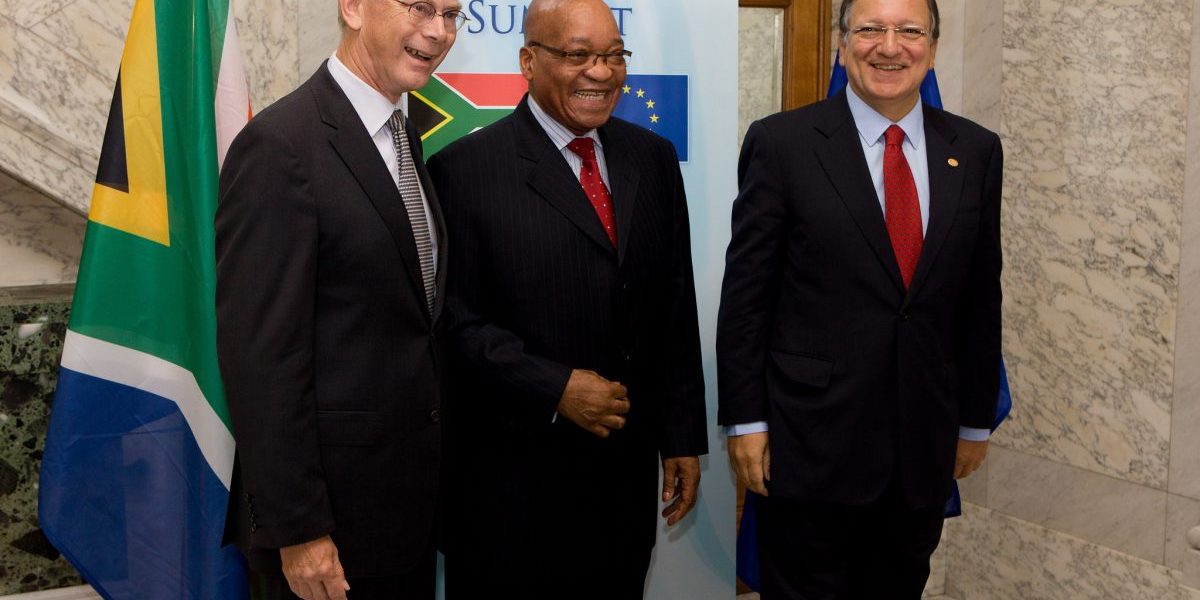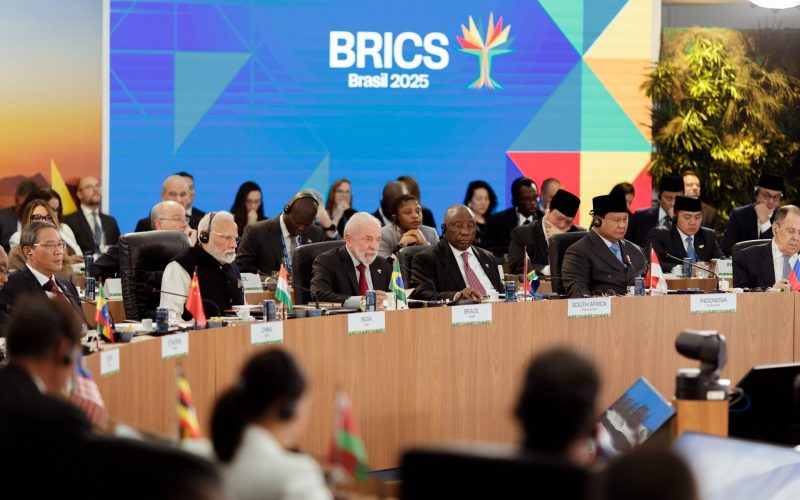This was hardly surprising. While trade was just one of the many issues covered in the wide-ranging discussions at the Summit, it has also been one of the most contentious matters in the bilateral relationship between the EU and South Africa, with the ability to sour even the most convivial of exchanges.
The recent fourth annual South Africa – European Union (EU) Summit on 15 September 2011 was preceded by a day of intensive engagements between Trade and Industry Minister Rob Davies and his counterpart from the European Commission on the Economic Partnership Agreement (EPA) negotiations between the EU and the Southern African Development Community (SADC). This was hardly surprising. While trade was just one of the many issues covered in the wide-ranging discussions at the Summit, it has also been one of the most contentious matters in the bilateral relationship between the EU and South Africa, with the ability to sour even the most convivial of exchanges.
The Summit was never going to be the place for reaching formal agreement on the outstanding issues in the EPA (especially as South Africa is negotiating as part of the Southern African Customs Union and the broader SADC EPA Group). It was however an opportunity to gauge the likelihood for progress in the negotiations through the high level interactions. By all accounts the meeting went better than expected. On the EPA negotiations, both the EU and South Africa reiterated their commitment to conclude the negotiations as a matter of priority. President Jacob Zuma told the media that ‘There is an agreement that we need to find an agreement. We are both very optimistic that the negotiations are going to go forward.’
There is little information available on the specifics that were discussed at the Summit but it is fair to say that since the interim EPA was signed by four members of the SADC EPA Group (Botswana, Lesotho, Mozambique and Swaziland) in June 2009, some progress has been achieved towards the negotiation of the final agreement, particularly with respect to market access. It has been agreed by all parties that the basis of the discussions would be the Trade Cooperation and Development Agreement (TDCA) that is already in place between South Africa and the EU. However, additional tariff concessions have been sought by both sides to improve the provisions of the TDCA and to offer greater protection to the sensitive interests of Botswana, Lesotho, Namibia and Swaziland.
The TDCA already covers approximately 90% of the current trade between South Africa and the EU. By 2012, 95% of the EU’s imports from South Africa and 86% of South Africa’s imports from the EU will be liberalised. This has left the parties with only a limited number of products with which to negotiate. The EU has asked South Africa to reduce the tariffs on some industrial products, including clothing and textiles. South Africa is seeking better access for agricultural commodities and processed goods, including wine and canned fruit. There have been lengthy consultations on the requests and offers in South Africa, including at the National Economic Development and Labour Council (NEDLAC), and in the EU but a final deal remains elusive.
The reality is that the market access provisions of the SADC EPA are coming down to the age-old trade chestnut of agriculture. This is a reflection of the interests of the SADC region (including South Africa – particularly with regard to processed agricultural products) and the space that is provided within the TDCA for expansion of access given that it already covers most industrial products. With South Africa unwilling to negotiate on so-called “emerging issues”, such as services, investment and competition policy, it appears that the trade-offs needed in order to reach an agreement will have to take place within the agriculture sector.
This has been brought to a head by the EU request to the SADC EPA for the mutual recognition and protection of geographical indications (GIs). The EU is seeking protection for a list of specific GIs on a range of agricultural products, including wines, spirits, cheese and processed meats.
Some from within the EU describe the issue of GIs as the ‘dealmaker’ in the current EPA negotiations. This is not the first time that the EU has used GIs as a bargaining tool in trade negotiations. Attempts have been made at the multilateral level in the WTO to introduce the protection of certain GIs for products other than wines and spirits as part of agricultural negotiations. The protection of GIs also forms part of the EU’s bilateral trade strategy. This was evident during the EU’s negotiations with South Africa for the conclusion of a bilateral free trade agreement which entered into force in 2000. Under that agreement, South Africa relinquished the right to use the designations “Port” and “Sherry” subject to certain conditions. The EU’s Wine Agreement with Australia, concluded in 2008 even goes beyond the protection and recognition of GIs by also addressing the mutual protection of traditional expressions.
GIs are less of an immediate interest to the other members of the SADC EPA Group given that the list presented by the EU covers products that are mainly produced by South Africa. This places South Africa in a difficult position. It will need to assess the EU’s request on GIs in the broader context of the EPA negotiations as a whole while also keeping the interests of the region in mind. South Africa has limited its options within the EPA negotiations by refusing to discuss issues such as trade in services, investment, competition policy and government procurement. This has reduced its bargaining space and might result in one request affecting the agriculture sector (e.g. GIs) being traded off against another (e.g. greater market access for canned fruit) in order to get an outcome. NEDLAC is unlikely to allow the South African Government to provide further concessions on industrial products to the EU and, without a third issue like services to break the deadlock, it is likely that concessions on agriculture will be necessary to clinch a deal.
Weighing up the regional implications of decisions taken in the EPA negotiations will no doubt be at the forefront of the minds of South African negotiators. The European Commission announced on 30 September that those countries that have not ratified and implemented an EPA by 1 January 2014 will lose duty free quota free market access. South Africa will continue to trade with the EU under the TDCA but without having ratified and started to implement a final EPA Botswana and Namibia could face MFN tariffs on their exports to the EU under the expected new GSP regime which will also come into force from 1 January 2014. In these circumstances, there would be significant pressure on the members of SACU to pursue their own commercial interests. The likely result is a negative impact on the integrity of the common external tariff. The pressure will increase in the coming months as the negotiators weigh up the implications of these trade-offs. For the moment, it still is unclear how the last act of the EPA saga will play out.








